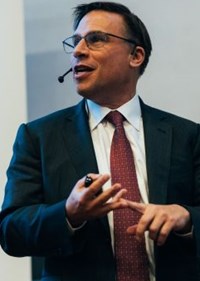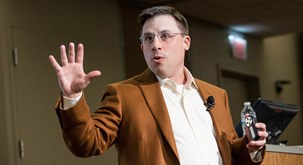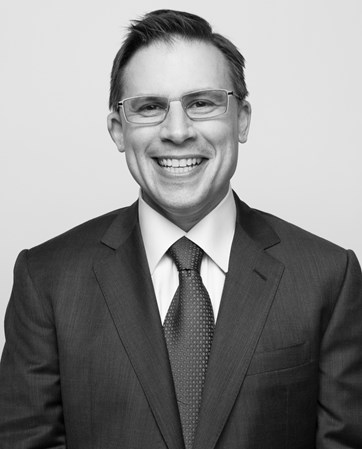Speakers By Topic

Speakers By Type




"{{ovation.quote}}"
-{{ovation.company}}AI and Big Data
Decision Making and Behavioral Biases
Strategy
Tobias "Toby" Moskowitz currently holds the Dean Takahashi ’80 B.A., ’83 M.P.P.M. Chaired Professorship in Finance at Yale University at the Yale School of Management, for which he is the inaugural chair holder (in 2016).
He was previously the Fama Family Professor of Finance at the University of Chicago Booth School of Business, where he taught from 1998 to 2016.
Professor Moskowitz was recognized by the American Finance Association with its 2007 Fischer Black Prize, which is awarded biennially to the top finance scholar in the world under the age of 40 in years when one is deemed deserving. The award cited his "ingenious and careful use of newly available data to address fundamental questions in finance." Moskowitz also won the Ewing Marion Kauffman Medal in 2012 for the top research in entrepreneurship for scholars under the age of 40.
His research papers have received numerous awards, including the Smith-Breeden Prize for the best paper published in the Journal of Finance, the Brattle Prize for the best non-asset pricing paper published in the Journal of Finance, two Fama-DFA Prizes for the best paper published in the Journal of Financial Economics, two Michael Brennan Awards for the best paper published in the Review of Financial Studies, the Swiss Finance Institute Outstanding Paper Award, and the Bernstein-Fabozzi and Jacobs-Levy Award for the best paper in the Journal of Portfolio Management, two Harry Markowitz prizes for the best paper published in the Journal of Investment Management, the Whitebox Prize for best financial research, and multiple Q-Group Best Paper Awards.
His work has been cited in the Wall Street Journal, the New York Times, Financial Times, US News and World Report, Money magazine, and a 2005 speech by then Federal Reserve Chairman Alan Greenspan. He has also appeared on CNBC's Closing Bell and Squawk Box, CNN, FOX, Bloomberg, as well as ESPN, Sports Illustrated, HBO's Real Sports with Bryant Gumbel.
Professor Moskowitz serves as a research associate for the National Bureau of Economic Research and is a former editor of the Review of Financial Studies, an associate editor of the Journal of Finance, and an associate editor at the Journal of Financial Economics.
His research studies financial markets and investments, including the behavior of prices and investors. He has explored topics as diverse as momentum in stock returns, biases in investment portfolios, the return to private business ownership, financial contracting in commercial real estate, mutual and hedge fund performance, the political economy of financial regulation, and the economics of sports. He has presented his research at many academic, corporate, and government institutions worldwide.
Professor Moskowitz spent the 2007-2008 and 2014-2015 academic years on leave at AQR Capital Management, LLC a hedge fund in Greenwich, CT, with which he has an ongoing consulting relationship. He was made a principal at the firm in 2015, where he contributes to research on asset pricing and investments for AQR’s domestic and international investment strategies.
In collaboration with David F. Swensen, the CIO of the Yale Investments Office, Professor Moskowitz founded the Yale School of Management’s Master’s program in Asset Management, for which he serves as the Academic Director and whose inaugural class will graduate in 2022. The one-year program seeks to train Master’s students in the theory and practice of asset management, with a curriculum that is tailored for that aim.
In 2011, he wrote the New York Times bestseller Scorecasting: The Hidden Influences Behind How Sports are Played and Games are Won, (Crown Archetype, Random House) co-authored with L. Jon Wertheim of Sports Illustrated, that uses economic principles to explain the hidden side of sports. He and Wertheim are also authors of the children’s book The Rookie Bookie in the Fall of 2015 (Little Brown).
Born in West Lafayette, IN, Moskowitz earned a bachelor's degree in industrial management and industrial engineering (with distinction) in 1993 from Purdue University, a master's degree in management from Purdue in 1994, and a Ph.D. in finance from UCLA in 1998.